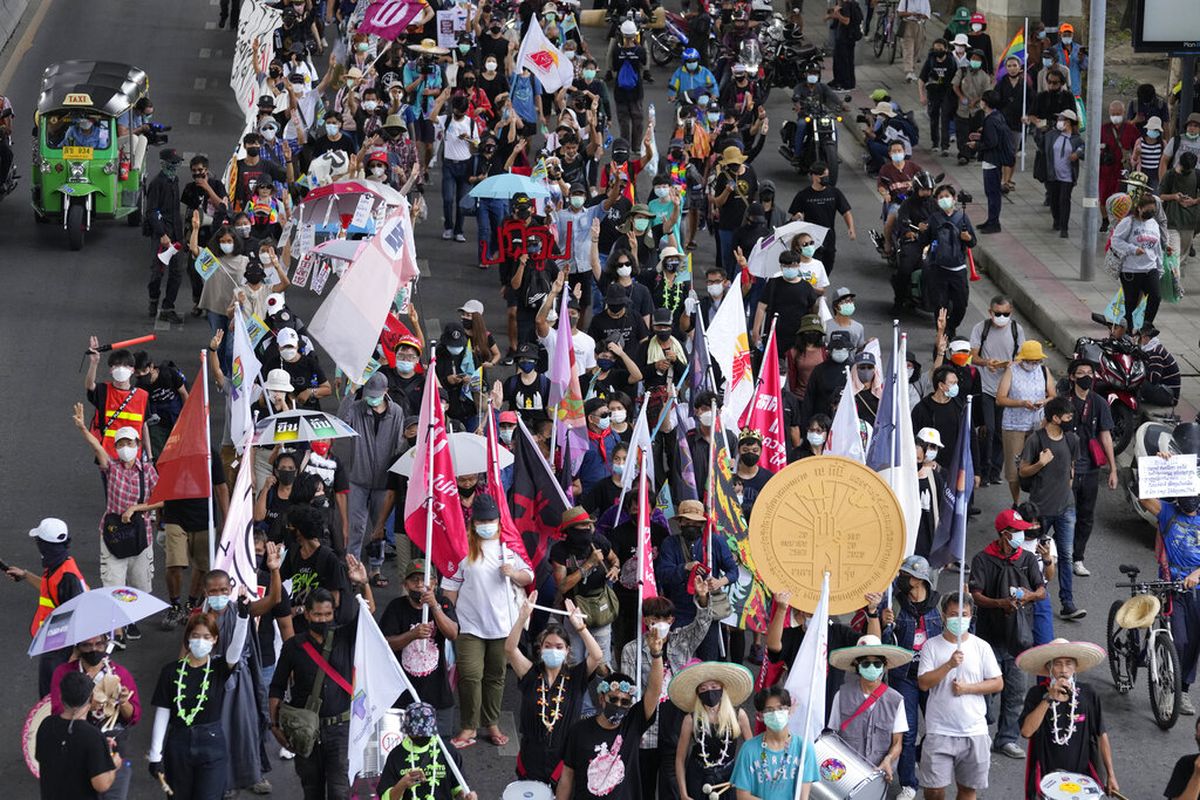Anti-Government Protests Grow Again in Thailand

KOMPAS.com - For the second time in as many days, anti-government protesters took to the streets of Bangkok demanding the resignation of Prime Minister Prayuth Chan-O-Cha.
Saturday's demonstrations came two days after protesters gathered by the thousands outside parliament and Cabinet offices to mark the 89th anniversary of Thailand’s transition from an absolute monarchy to a constitutional one. Thursday's gatherings were the first anti-government rallies since the Southeast Asian country's most drastic resurgence of Covid-19 infections triggered lockdowns in April.
Hundreds turned out again Saturday in violation of ongoing Covid-19 restrictions to apply more pressure on the government.
“We would like to get a new government to control Thailand. We need to change the constitution first and then we change all the systems. We have to rewrite again," said Witsaruj, 34, who told VOA he regularly participates in the demonstrations. “I think the power of the people [can] make the change. If we have a meaningful vote, then we can restart Thailand. Democracy is the power of the people.”
Pandemic procedures criticized
Protesters have voiced their disapproval of the government’s handling of the pandemic and vaccine rollout. Some were seen carrying signs criticizing the Chinese-made Sinovac as hundreds of police were on standby, barricading roads to government offices.
Also read: Philippine, Thailand Leaders No-Shows At Jakarta ASEAN Summit
By evening, longtime political activist Jatuporn Prompan led his Thai Mai Thon (Impatient Thais) camp toward Cabinet offices before rerouting in the face of street blockades, shortly after which the enthusiastic but peaceful protesters settled outside Thailand’s Rajamangala University campus. Speakers, addressing crowds on makeshift podiums, took turns criticizing the administration, with some labeling Prayuth a dictator.
The rally ended a few minutes past 10 pm local time with no major incident, but Jatuporn called for more rallies with bigger numbers next week.
Kan Sangtong, who works as an observer with Amnesty International Thailand & iLaw as part of a human rights project, told VOA that he expected similar protests.
“I think it will be peaceful," he said. "They cannot be aggressive, because they know they don’t win. But they just have the motivation and the heart.”
Unpopular figure
Prayuth Chan-O-Cha, formerly the leader of the Thai military, seized power in the 2014 coup. He was elected prime minister in 2019 in disputed elections. He has the backing of the monarchy and a Senate he helped appoint but remains unpopular with many young Thais.
The Thai protests erupted in August last year, directly criticizing the role of the monarchy and of King Maha Vajiralongkorn and demanding a reduction in their political powers.
Thousands took to the streets, sometimes leading to violence and skirmishes between protesters and riot police, with authorities deploying tear gas and water cannons to disperse crowds.































